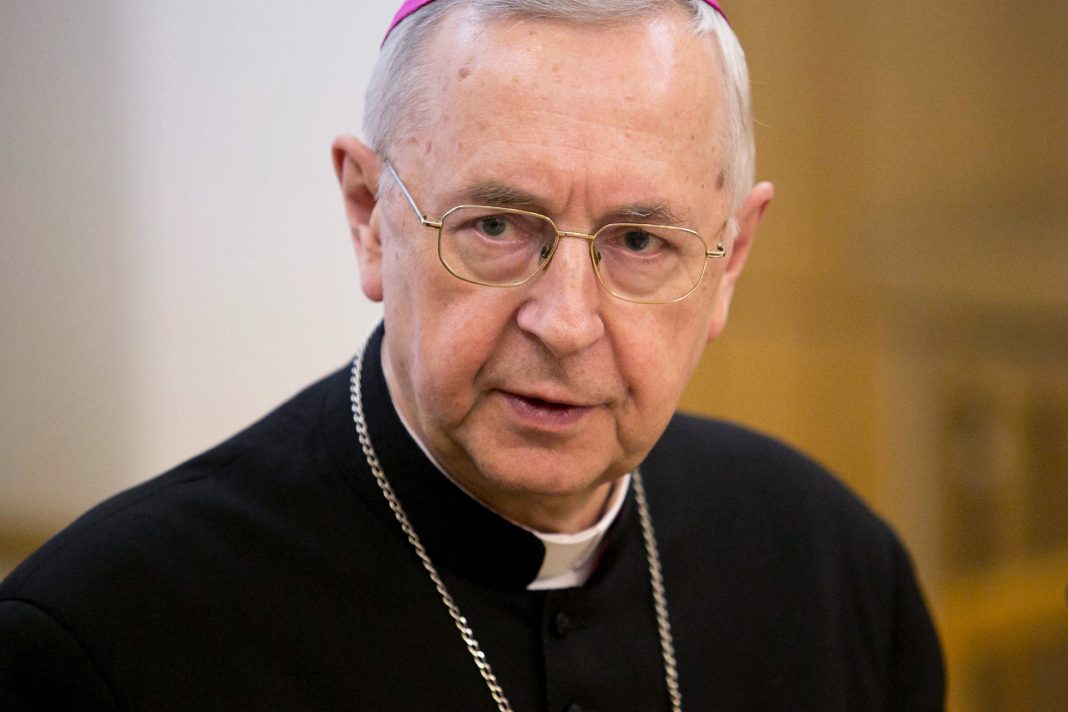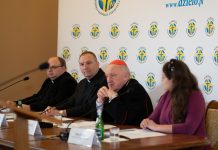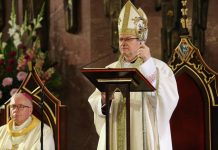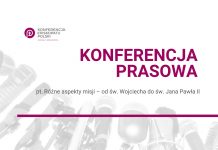„Vaccination against Covid-19 is an important tool for limiting the spread of the infection and is seen by a very many people as a hope for the possibility of returning to the normal functioning of societies,” wrote the President of the Polish Bishops’ Conference, Archbishop Stanisław Gądecki, in a Statement on Vaccination against Covid-19.
The President of the episcopate noted that vaccination should be voluntary but, at the same time, that „the Church supports all those who make the decision to be vaccinated.” Referring to the Note of the Congregation for the Doctrine of the Faith dated December 21st, 2020, he wrote that „vaccination is not, in principle, a moral obligation.”
Archbishop Gądecki cited the example of Pope Francis, who not only vaccinated himself, but has repeatedly called for vaccination and the fair distribution of vaccines to poorer countries.
The President of the Bishops’ Conference also underscored that vaccination should not lead to the neglect of other elements that are important for limiting the spread of SARS-COV-2 infection and the treatment of COVID-19, namely, „attention to hygiene, responsibility in human relations, accessibility to health care services, including effective pharmacotherapy, and the development of basic and clinical research aimed at better prevention, diagnosis, and treatment.”
Press Office of the Polish Bishops’ Conference
We are publishing the full text of the Statement:
STATEMENT
OF THE PRESIDENT OF THE POLISH BISHOPS’ CONFERENCE
ON THE ISSUE OF COVID-19 VACCINATION
In the context of numerous questions regarding the position of the Catholic Church on the issue of Covid-19 vaccination, I would like to remind you that the Church has already expressed its position on this issue on several occasions.
1 „The Church first emphasized that the invention of vaccines can be considered—from the perspective of preventive medicine—as the special fruit of a gift given to man by God, who is not indifferent to man’s fate and the dangers of disease, including infectious diseases. It is thanks to God’s fatherly goodness—also manifested in the available vaccines—that many infectious diseases, which previously had a lethal character (i.e., led to death) or had become the cause of disability and suffering for man, have been eliminated” (Position of the Group of Experts on Bioethics of the Polish Bishops’ Conference on Vaccines, 1).
2. Moreover, „life and health are precious gifts given to man and entrusted to his prudent responsibility. This is a responsibility that goes beyond the framework of exclusive concern for oneself. Interpersonal solidarity motivated by the evangelical love of neighbor reminds us, in the context of the threat of a pandemic and the availability of vaccines, of the duty to care also for others, for the human community. This attitude should characterize the Christian culture in which we live and be carried forward by it” (Position of the Group of Experts on Bioethics of the Polish Bishops’ Conference on Vaccines, 23).
3. The decision to vaccinate should take into account the requirements of the common good, but vaccination should be voluntary. According to the Note of the Congregation for the Doctrine of the Faith dated December 21st, 2020 „vaccination is not, in principle (di norma), a moral obligation” (Congregation for the Doctrine of the Faith, Note on the morality of using some anti-Covid–19 vaccines, 5).
4. Vaccination against Covid-19 is an important tool for limiting the spread of the infection and is seen by a very many people as a hope for the possibility of returning to the normal functioning of societies. For this reason, the Church, in contact with the competent medical and sanitary services, supports the educational and informational social and public initiatives aimed at increasing the awareness of the faithful regarding vaccination. Furthermore, the Church supports all those who make the decision to be vaccinated. The example of Pope Francis, who has not only vaccinated himself but has repeatedly called for vaccination and the equitable distribution of vaccines to poorer countries, is an encouragement to vaccinate for those who are concerned not only with their own well-being but also with the common good.
5. Vaccination should not lead to the neglect of other elements important in limiting the spread of SARS-COV-2 infection and the treatment of COVID-19, including hygiene, responsibility in human relations, accessibility to health care services, including effective pharmacotherapy, and the development of basic and clinical research aimed at better prevention, diagnosis, and treatment.
+ Stanisław Gądecki
Archbishop Metropolitan of Poznań
President of the Polish Bishops’ Conference
Vice-President of the Council of the Conferences of European Bishops (CCEE)
Warsaw, 8 July 2021
(translation: S. P. Nau / Office for Foreign Communication of the Polish Bishops’ Conference)

 English
English







